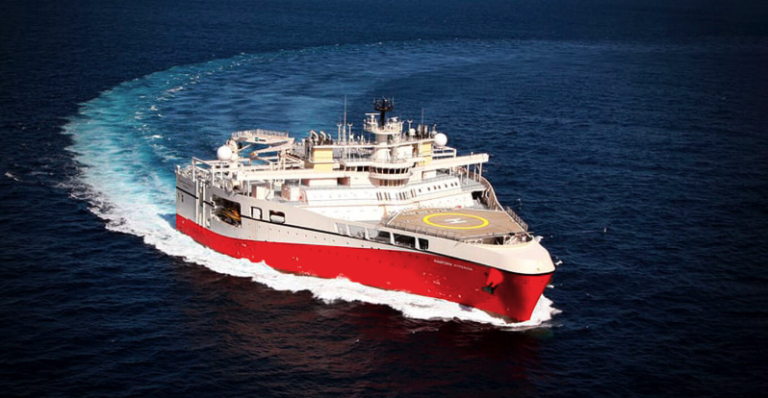Another front threatens to open up in foreign policy as Libya’s interim government reacted with a diatribe last week over the surveys conducted by a Norwegian research vessel in the South and Southwest Plots of Crete.
According to reports, last week and while the Ramform Hyperion’s 3D seismographic surveys were completed in an area suspected to contain interesting gas deposits, a letter of protest was served to the Greek ambassador in Tripoli, N. Garilides.
The Libyan interim government of Abdel Hamid Dbayba thus insists on the well-known tactic of contesting the land boundaries defined by Greece under the Maniatis law which provides that in the absence of a bilateral delimitation agreement, the outer limit of the Greek EEZ is considered to be the median line.
The government of Tripoli had reacted in the summer of 2019 with representations to Athens and continued with the signing of the Turkish-Cypriot Memorandum, which attempted to create a fait accompli in the Eastern Mediterranean for the benefit of Turkey in the first place and paving the way for Libya to claim a large part of the Greek continental shelf on the basis of this arbitrary and contrary to the Law of the Sea document.
The interim Libyan government, whose legitimacy is disputed by many parties and within the country despite being recognised by the UN, had rushed to sign another Memorandum with Turkey in 2022 for joint exploration and exploitation of hydrocarbons in Libya’s “maritime areas”, which despite its annulment by the Libyan Administrative Court of Appeal remains on the table.
The two governments and the role of Egypt
The political situation in Libya remains volatile with the existence of two governments and UN efforts to find a happy medium for elections have been unsuccessful. Turkey remains a strong supporter of the Dbeiba government, although it has made serious overtures to Benghazi and General Haftar, seeking to salvage the agreements signed with the interim government by offering both military and financial support, while significant Turkish operations are returning to Libya. On the EU side, moves are being made mainly by Italy, which maintains strong interests in the country, to strengthen relations as the North African Arab country has an important role both for Europe’s energy security and for the containment of migratory flows coming mainly from East Africa and the Sahel.
From the beginning of 2024, the US is also attempting to consolidate its military presence in Tripoli as a counterbalance to Moscow’s support for Eastern Libya and General Haftar.
A crucial factor is the attitude of Cairo which, after a long period of frozen relations with Tripoli, is seeking channels of communication with the Dbeiba government, realising that its influence in the neighbouring country can be secured by re-establishing even informal relations with the interim government.
Of course, in recent months Cairo has been in constant confrontation with Tripoli on the issue of maritime zones in the wake of Libya’s declaration of the Boundary Zone (it sent a second letter to the UN on 9 April) which, following the demarcation line of the Turcoli Memorandum, overlaps part of Egyptian territorial waters. Athens had also reacted to the Libyan Boundary Zone as, among other things, it attempts to create a fait accompli by closing the Gulf of Sirte and adopting arbitrarily drawn straight baselines, moving the median line northwards to the detriment of Greece.
Athens’ stance
Tripoli’s move comes at a time when expectations have been raised for the discovery of a significant deposit within the Greek EEZ by the ExxonMobil-Helleniq Energy consortium that manages the two concessions in the west and southwest of Crete. The head of the EDEYEP, Aristotelis Stefatos, said in early May that the picture is “very positive”, while Development Minister Kostas Skrekas said that “if we are so lucky, then the size of the plot – which is estimated to be found so far – will be enough for the energy security not only of Greece but of the whole of Europe”. However, according to estimates by oil market players, the test drilling is set for the end of 2025.
In Athens, however, there is a strange “rebound” with Libya and while after the crisis in relations with the cancellation of Nikos Dendias’ visit to Tripoli due to the presence of the then Foreign Minister N. Mangous at the airport, it was decided to place an ambassador in Tripoli, no initiative has been taken to ensure that there is basic communication between the two countries at least on common problems such as that of migratory flows. And also to put pressure on the interim government to abandon its adventurism with the maritime zones and seek a solution to the disputes with its neighbours Greece and Egypt through dialogue and on the basis of International Law and if there is no agreement, referral to the Hague as Libya has already done twice with Malta and Tunisia.
Ask me anything
Explore related questions





